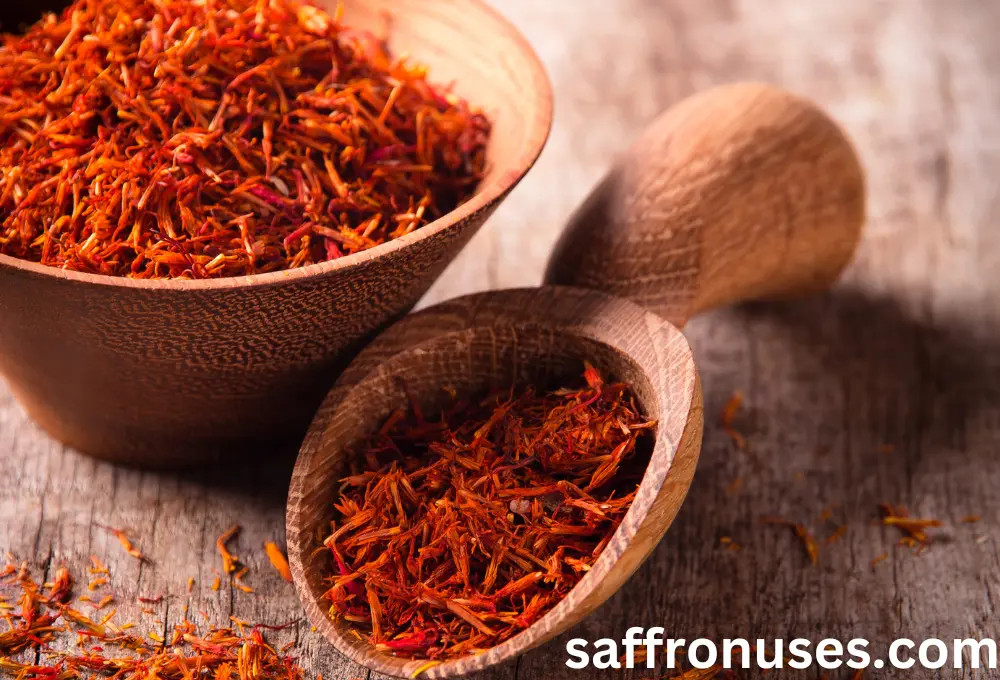Almost all women experience PMS (Premenstrual Syndrome) at some point. While these symptoms may be mild and occasional for some, PMS can be a real nightmare for others. This complex condition likely has multiple causes, including hormonal fluctuations and nutritional deficiencies playing a key role. The good news is that there are natural remedies available that can reduce or eliminate these symptoms. Read the article below to learn more about PMS, find healthy lifestyle and dietary tips, and address the changes and symptoms of premenstrual syndrome.
What is PMS?
Premenstrual Syndrome (PMS) is a collection of physical and emotional symptoms that occur in the weeks leading up to menstruation. Common emotional symptoms include:
- Irritability
- Anger
- Mood swings
- Depression
Common physical symptoms include:
- Headaches
- Fatigue
- Breast tenderness
- Muscle aches
- Sleep problems
- Acne and skin blemishes
- Bloating
- Indigestion
- Diarrhea
- Stomach pain
- Cravings for chocolate and sweets
What is PMS, and why do its symptoms vary greatly among women?
The female body undergoes cyclical changes that prepare it for pregnancy. Estrogens and progesterone, hormones produced in the ovaries, regulate these changes.
They, in turn, are stimulated by hormones such as LH (luteinizing hormone), FSH (follicle-stimulating hormone), and GnRH (gonadotropin-releasing hormone) produced in the brain.
These cyclical changes play a key role in PMS symptoms. However, PMS is mostly influenced by hormonal fluctuations, and researchers have not yet reached a definitive conclusion regarding its causes.
While hormonal fluctuations during the menstrual cycle may play a significant role in this syndrome, other factors are at play.
For example, although hormonal fluctuations can cause bloating, breast tenderness, pain, and weight gain, they may not significantly impact women’s emotional symptoms.
PMS symptoms are related to how physical changes occur during menstruation. Women with more complex brain tissue complexity may spend more time coping with hormonal changes affecting their bodies.
Other studies indicate that nutritional deficiencies are recognized as a source of PMS symptoms.
Approximately 95% of women of reproductive age experience some degree of PMS. While most cases experience only mild symptoms, about 5% of women may experience a more severe form of PMS called Premenstrual Dysphoric Disorder (PMDD).
PMDD is considered a depressive disorder with severe symptoms to significantly impact a person’s normal, educational, or social activities.

Possible causes of PMS include:
- High estradiol (estrogen) levels
- High progesterone levels
- Elevated luteinizing hormone levels
- Other hormones
- Iron deficiency
- Magnesium deficiency
- Manganese and calcium deficiency
Natural ways to alleviate PMS symptoms include:
Relaxation techniques: Relaxation techniques such as meditation, deep breathing exercises, and cognitive-behavioural therapy may help reduce PMS symptoms.
Acupuncture: Studies have shown that PMS symptoms, especially pain, can improve with acupuncture.
Exercise: Exercise can help with PMS symptoms. Aerobic exercise (such as walking, swimming, etc.) is the best for alleviating physical symptoms.
Yoga: Yoga can also help reduce physical symptoms and relieve pain.
Quitting smoking: Quitting smoking may improve PMS symptoms. Women who smoke tend to experience more problematic PMS symptoms.
Diet and supplements:
Reduce salt and carbohydrate intake: Consuming less salt and carbohydrates may help prevent bloating in women with PMS.
Avoid alcoholic beverages: Alcohol can increase the chances of experiencing PMS. Drinking alcohol less frequently may help reduce PMS symptoms.
Consume an iron-rich diet: In a study of 116,678 nurses in the United States, consuming an iron-rich diet was associated with a 31% lower risk of PMS. Ensure that your diet provides an adequate amount of iron.
The effect of saffron on PMS
According to a study published in the International Journal of Gynecology & Obstetrics, a randomized controlled trial with a placebo (an inert substance) investigated the relationship between saffron and PMS.
In this study, women between the ages of 20 and 45 with regular menstrual cycles who experienced PMS symptoms for at least one month were eligible to participate.
The women were randomly assigned to two groups. The first group received 30 mg of saffron capsules daily (15 mg twice daily, morning and evening), and the second group received placebo tablets twice daily.
Both groups underwent this treatment during their third and fourth menstrual cycles. The researchers of this study concluded that “saffron is effective in reducing PMS symptoms.”
Saffron also has significant potential to prevent memory loss and neurological disorders. Due to its diuretic, anti-asthmatic, sedative, stroke prevention, and anti-stress properties, saffron has been used in traditional and herbal medicine.
It is also used in the preparation of analgesics. Saffron has anti-inflammatory properties, and studies show that crocetin, an active compound in saffron, reduces cholesterol and triglyceride levels.
Saffron has antioxidant effects and inhibits lipid peroxidation, a process by which free radicals detach electrons from fats in cells, causing damage to them.

A recent meta-analysis on saffron has shown that this valuable spice can improve symptoms of depression, such as anxiety, weight changes, premenstrual syndrome, sexual dysfunction, and infertility.
One of the oldest uses of saffron is for treating PMS. Exposing women to the scent of saffron for 20 minutes significantly reduces PMS symptoms and improves irregular menstrual cycles. This effect occurs through the reduction of the stress hormone cortisol.
Use 30 mg of saffron daily to control PMS symptoms. Add 5-7 strands (approximately 15 mg) of saffron to a cup of warm milk and drink it twice daily to alleviate your PMS symptoms.
Furthermore, in another randomized controlled trial (DB-RCT), daily saffron supplementation for two months reduced PMS symptoms.
Saffron is the most expensive spice in the world, and it may not be feasible to obtain it in large quantities for all women worldwide. However, the good news for women suffering from premenstrual syndrome is that you only need a very small amount of saffron to alleviate the symptoms.
Saffron has a significant impact on treating premenstrual syndrome. Premenstrual syndrome is a problem that affects approximately 20 to 40 percent of women in their childbearing years. The premenstrual syndrome causes physical and emotional disturbances in women.
The emotional symptoms that occur in PMS can be relieved with saffron. The most severe type of PMS is premenstrual dysphoric disorder, which creates mood and behavioural changes in women.
According to studies conducted to treat premenstrual syndrome, fluoxetine, citalopram, and sertraline can be used.
Fluoxetine and sertraline treat women’s physical and psychological symptoms during premenstrual syndrome. Saffron, with its serotonergic mechanism, which reduces depression, alleviates premenstrual syndrome symptoms.
The effect of saffron on premenstrual syndrome
According to research on saffron’s effect in alleviating symptoms of PMS in women, a dose of 30 milligrams of saffron capsules was used. The study included two groups of 25 women aged between 20 and 45. The women who used saffron reported a 76% reduction in PMS symptoms, while the placebo group reported an 8% reduction.
No significant differences were observed in side effects between the two groups. Since PMS symptoms often overlap with depression, the effect of saffron on depression was also confirmed. Inhalation of saffron aroma affects women’s hormone levels and changes some hormones.
Changes in women’s hormone levels effectively treat premenstrual syndrome and irregular menstruation. If pregnant women use saffron with concentrations of 0.2, 0.4, and 0.8% in the last three months of pregnancy, it can cause premature labour because saffron increases uterine contractions.
Higher doses of saffron, exceeding ten grams, are used for easy delivery and abortion. Using saffron in these cases can cause nausea, uterine bleeding, hematology, gastric bleeding, and dizziness.

In traditional medicine, the effect of saffron on PMS is as follows:
There are two versions of saffron for treating premenstrual syndrome or PMS. The first version is used to induce menstruation. This version consists of a capsule containing 0.05 grams of Sabin round, 0.05 grams of yellow patience, 0.1 grams of saffron, and 0.1 grams of Fantine, taken in 2 to 3 capsules daily for 5 days. The other version is a capsule containing 5 grams of tartrate, iron, and potassium, 2 grams of saffron, and 2 grams of cinnamon, taken in 2 to 4 capsules daily.
The effect of saffron on the uterus
According to research, pregnant women should not use saffron herbal tea as it can cause miscarriage. The importance of this plant lies in its yellow-coloured compounds. These yellow compounds reduce menstrual disorders and depression in women by promoting serotonin production in the brain and controlling it.
Women with irregular menstrual cycles are advised to use saffron herbal tea, which provides energy and helps regulate sleep. In the past, saffron was used to enhance the colour and aroma of food.
Crocin is one of the main components of saffron, and it contains phytochemicals, carotenoids, flavonoids, terpenoids, and curcumins.
Harmful effects of saffron during pregnancy:
According to studies conducted at Iranian universities, saffron increases uterine readiness for childbirth in pregnant women. It can cause cervical shortening and thinning of the uterine wall.
Saffron for treating allergies in women:
The immune system of women becomes weakened during pregnancy and after childbirth, making them more susceptible to allergies. The use of saffron in food strengthens the immune system. Saffron is rich in vitamin C and beneficial antioxidants for the mother and the child.
Treatment of delayed puberty in girls with saffron:
Saffron is a good general stimulant in treating delayed puberty in girls. Mixing a teaspoon of saffron with milk stimulates the hormones in girls, promoting puberty.
Benefits of saffron for menstrual disorders:
Research conducted by researchers at the Psychiatry and Psychology Research Center of Tehran University of Medical Sciences yielded important results regarding the effect of saffron on menstrual disorders.
Dr. Shahin Akhondzadeh, a researcher involved in these studies, explained the impact of saffron on treating menstrual pain, depression, and Alzheimer’s disease in women. The study was conducted on 48 married women aged 22 to 40 who suffered from premenstrual syndrome (PMS).
Women who used saffron capsules during this period experienced a 44% reduction in PMS symptoms. The production of saffron capsules is currently undergoing approval from the Ministry of Health, Treatment, and Medical Education. Symptoms of PMS hurt women’s daily activities, and working women are more prone to experiencing PMS.
Conclusion:
Saffron is a nutrient-rich substance that has many benefits. According to research, saffron reduces menstrual disorders, premenstrual syndrome, and depression in women. During their menstrual cycle, women can use saffron herbal tea for pain relief. In the past, this plant was used to treat irregular menstrual cycles in women. Using more than 3 grams of saffron per month can be harmful. Symptoms of saffron poisoning include vomiting, decreased heart rate, nosebleeds, and dizziness.


